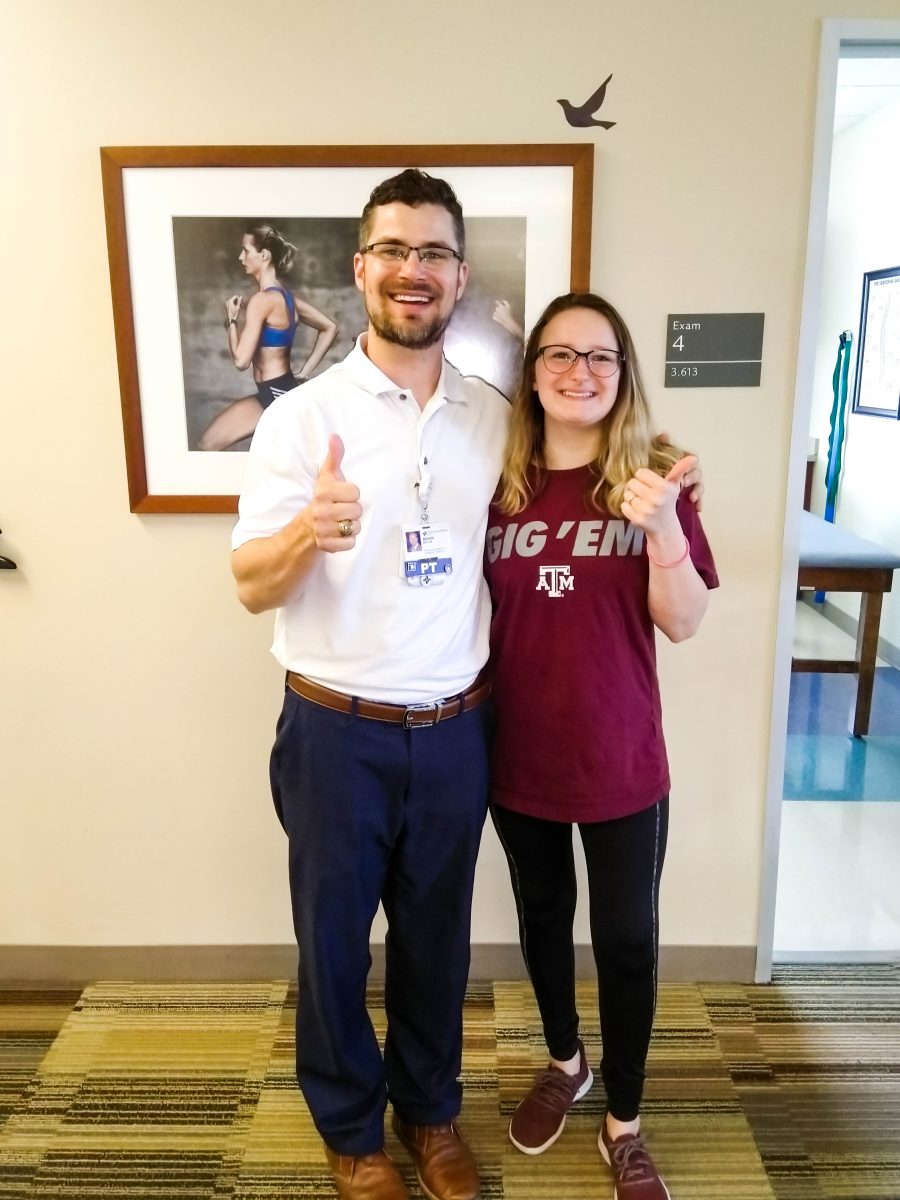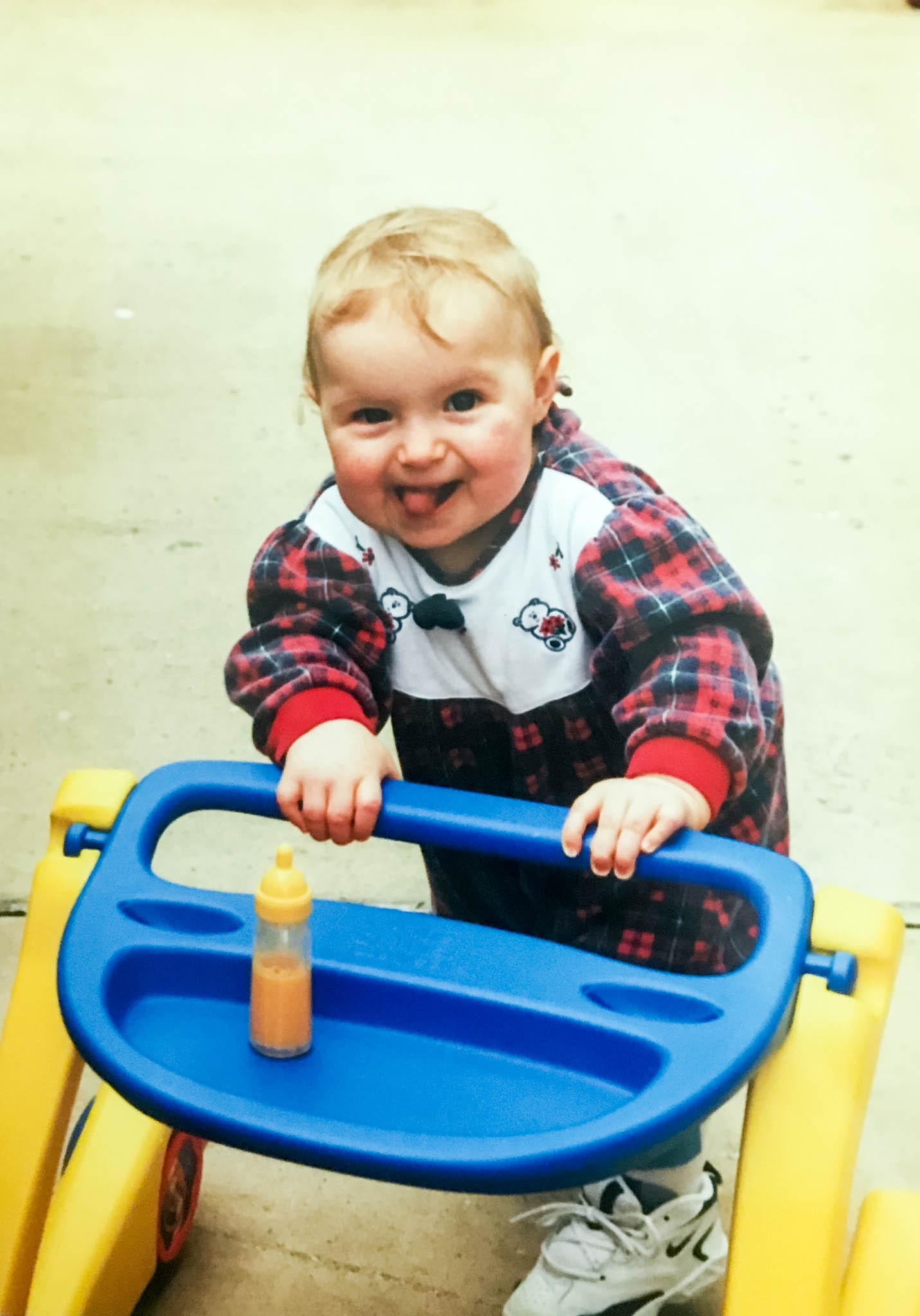Trials and tribulations are a common part of anyone’s life, but for Ashley Alario they came when she was just six months old.
As an infant, Alario caught a common cold. But unlike most colds that can be fixed with rest and medicine, Alario’s cold affected her spinal cord and paralyzed her from the waist down. She was then diagnosed with transverse myelitis — an infection to areas around the spinal cord.
This was just the beginning to a long journey of recovery for Alario and her family.
Due to this condition, her childhood consisted of mostly physical therapy from kindergarten through fourth grade, along with two surgeries to fix muscle tightness when she was eight and 10 years old.
“I think I knew pretty early on,” Alario said about her diagnosis. “I used to take medicine where the Texas heat was really hard on my body. I used to stay in during recess and in Kindergarten I had people stay in with me so I wouldn’t be alone. I knew from the beginning. People would let me know that I was kind of different.”
Alario regained feeling in her waist and legs as she grew up, and although she was never wheelchair-bound, she wore leg braces and ankle braces through elementary and middle school.
As her ability to walk and her muscle strength improved, Alario eventually didn’t need leg braces. But her walk still posed a problem in her social life — more specifically, her social life in college.
“She rehabbed and did better, everything was perfect but the people around her in the community kind of understood what she had and it wasn’t a big deal,” Alario’s physical therapist Benjamin White said. “When she started to go to A&M, in their [students] own way she was made fun of and it bothered her enough that she wanted to get it taken care of.”
For Alario, her decision to return to physical therapy was difficult because of her experience with therapy as a kid. The only difference was this time around, she had a goal.
“It’s really about motivation because I used to go to therapy around the beginning of high school and my mind wasn’t in it. Nothing helped,” Alario said. “I didn’t do the exercises at home, I didn’t — I hate to say I didn’t care, but I was just jaded about everything. The whole treatment, I was just tired of it. Now that I had that break, my mind was really in it and I wanted to get better. It was a big difference.”
White said although he has been a physical therapist and neurological specialist for six years, Alario was his first patient with transverse myelitis.
“I had worked with people with similar diagnoses but I had not had that exact specific one,” White said. “Especially with someone that’s that young. The unique thing about her is that people will have these conditions or can as a little kid and it’s real easy to give therapy to a little kid, but they can get left in the dust once they’ve had this condition forever.”
Alario and White began working together in the fall of 2018 at the Baylor Scott and White Clinic in College Station.
“Ultimately I wanted to be able to build her confidence,” White said. “She presented to me very anxious and fearful. I think it was a mix of her not knowing what therapy would be like. I wanted to engage her into what we were doing, meaning that I wanted her to know that I was there to help her, but also show her that I was going to provide her with something different than she had been given her whole life.”
In four months, the two bonded over Aggie traditions — Alario is Class of 2021 and White is Class of 2010 — and grew her leg strength so she could participate in football games and get around campus.
“When I knew you had to stand and balance on top of the seats the whole time, I was like ‘oh man, that sounds kind of daunting.’ We definitely practiced some exercises that would help with that in therapy,” Alario said.
White would also have Alario walk over obstacles while carrying a backpack because of the crowded classrooms she was attending during freshman and sophomore year.
As her time in therapy came to an end, Alario began to see changes in how she acted around campus. Now a zoology junior, Alario said she is more confident than ever before.
“I felt more confident being on campus and knowing that my walk looked a little better. It was all in my head but I always felt people look at me because I felt my walk was different,” Alario said. “It was really a confidence boost to know it was getting better.”
However, it was more than confidence that she gained through therapy.
“She met the majority of her goals which meant she walked fast, she wasn’t as tight, meaning that her foot didn’t drag nearly as much as it used to, and she was very understanding of how to manage this on her own,” White said.
Her change physically, opened up Alario to more opportunities like going on a ski trip to Utah during winter break.
“It was good,” Alario said. “I think the work I did the previous months really helped a lot because I think I’m in a very different place physically than I was when I started therapy.”
Alario said even though she doesn’t currently go to therapy, she plans to go back to work on higher level exercises and continue to gain strength in her legs.
Both Alario and White agree that her improvements came from more than constant exercise and therapy. It was changing her mindset and making her feel comfortable that ultimately helped Alario overcome her trials and tribulations.
“I can’t stress enough that because her emotional impairments started to resolve that’s why she was able to improve physically,” White said. “…I’ve found that the brain can’t learn a new task if its being stopped by fear or anxiety.”
Finding her feet again
June 24, 2019
Photo by Provided
Benjamin White and Ashley Alario, Classes of 2010 and 2021, respectively, bonded over Aggie traditions when they began working together in the fall of 2018.
Donate to The Battalion
Your donation will support the student journalists of Texas A&M University - College Station. Your contribution will allow us to purchase equipment and cover our annual website hosting costs.






















